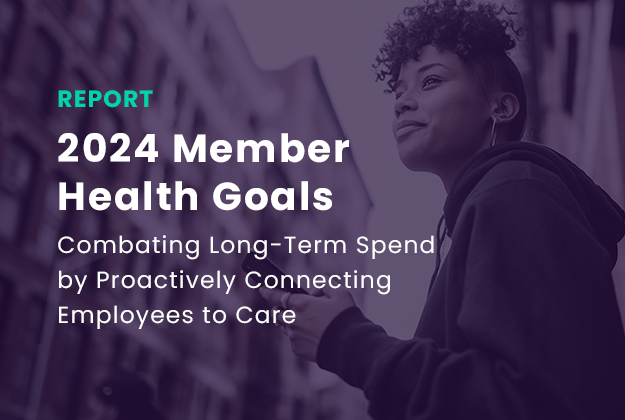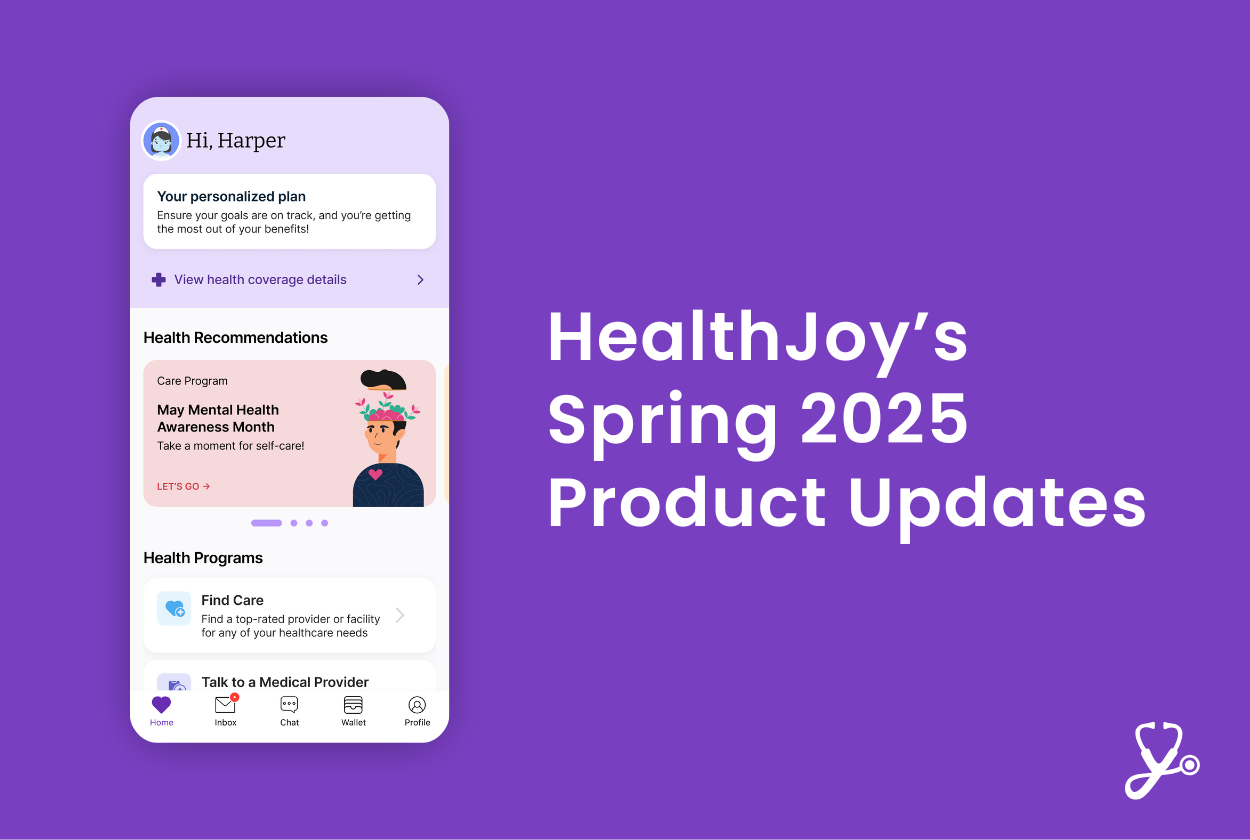2024 Member Health Goals
The second annual Member Health Goals report harnesses the power of data to help discover the differences between the type of benefits employees...
Connected Navigation Platform
Guiding to high-value care
Behavioral Health
Foster a mentally healthy workplace
EAP
Supporting holistic wellbeing
Virtual MSK Care
Reimagining musculoskeletal care
Virtual Primary Care
Powered by smart navigation
Surgery Centers of Excellence
Best-in-class surgical outcomes
Virtual Urgent Care
Immediate care, any hour of the day
Chronic Care
A new approach to chronic care
Integrations
Flexible to any strategy
.png)
While it may be a little too late to say ‘Happy New Year’, one thing we know for sure is that it’s not too late to set your 2025 goals. A study done by Columbia University states that only 25% of people stick with their resolutions for the new year beyond 30 days. Now that January is out of the way, it’s the perfect time to refocus and revisit your goals for the year.
According to Forbes, here are the most common resolutions:
It’s no surprise that health goals make up the vast majority, and that’s exactly what we’ll be exploring in this post.
At HealthJoy we think it’s important for everyone to have at least one health-related goal to work towards. Accountability is one of our core values, and we’re here to help you set, stick to and accomplish those wellness goals. So, let’s look at five keys to setting great goals for your health in 2025.
If you hear someone say “set smart goals” it may sound a bit obvious. But what they’re likely referring to is the acronym SMART, which stands for specific, measurable, attainable, relevant, and timely. This goal-setting framework is easy to remember and makes it more likely you’ll work towards and achieve each of the goals you set.
Here’s how you can set SMART goals, according to Harvard Health:
By using the SMART goal framework, you can identify and work towards your goals and track your progress along the way.
Figuring out what the right support system is for you could make a world of difference when it comes to the outcome of your health goals. Whether it is social support, like joining a challenge to get 10,000 steps a day with a few close friends or having an accountability partner you go to the gym with a few times each week, this support helps in so many ways.
No matter what your support system looks like, you don’t need to work towards your goals alone! Even if you don’t have a huge social circle, there’s always someone you can partner with. Maybe you could even start a health goals slack channel at your workplace where teammates can share goals and updates when they hit milestones.
And it’s not just other people who can help you reach your goals. Consider leveraging technology to keep you on track. Smartwatches or mobile apps on your smartphone can be very helpful when it comes to accountability.
Here are a few apps to check out:
While this one might seem like a no-brainer, it’s critically important that our goals are important to us. In the same way that it was easier to learn and retain knowledge in the subjects that interested us most in school, goals with true meaning are easier to accomplish. People aren’t only more committed to achieving them, but they lead to a great sense of accomplishment upon completion.
For example, “improving mental health” may not sound like a motivating goal alone, but “being more present when spending time with family and friends” adds personal importance to the goal. And not only does this mindset shift benefit the person setting the goal, but you can also visibly see how you’re positively affecting those around you, or in this case, your family and friends. Personalizing or anchoring goals around something you care about can make goals feel less abstract and drum up motivation.
This one’s simple. Bite-sized tasks are easier to tackle than daunting ones. The idea of cleaning your entire house can be so overwhelming that you might procrastinate even starting. However, if you break it down into a list of manageable chores you can kickstart your progress.
The same is true for your health goals.
So, if one of your goals this year is to finish a 10k race, consider breaking it out into several goals like running three times per week, running three miles at race pace, or completing a 5k. Starting small can lead to impressive results and less discouragement along the way.
According to Psych Central, rewards help us “feel energized, cared for, and content, which boosts our self-command — and self-command helps us maintain our healthy habits.”
So, science is telling us what we already know: rewards are fun. So, how can we reward ourselves in a way that helps us reach our health goals?
One way is a purchase related to a goal. For example, if your goal is to cook more at home, you can reward yourself with a brand new cookware set after the 25th dinner you make at home.
Another way is to reward yourself by posting progress, so others can celebrate your accomplishments with you. So, whether you complete a race, head to therapy for the first time (or the first time in a long time), or stick to a vegetarian diet for six months, don’t be afraid to tell others about your progress.
Chances are your friends, family, and acquaintances will be excited to celebrate with you – and maybe you will even inspire them to set their own health goals. By publicly sharing your goals and achievements, you’ll unlock the reward of positive reinforcement, one of the most powerful sources of lasting motivation.
No matter what your health goals are for 2025 – you’ve got this! Use the tips above as a starting place. Once you’ve figured out what works best for you, you will be well on your way to accomplishing what you set your mind to this year.
And be sure to stay tuned to the HealthJoy blog. We stay up-to-date with our members through our Member Health Goals questionnaire. This is part of our onboarding experience, which allows members to share their personal health goals within the HealthJoy app. Every year, we compile this data and share it in a report, which helps us, our clients, and our members understand the latest trends in the health and wellness space.
The latest Member Health Goals report for 2025 is available now! Download the report for free to see key insights from over 133,000 real employees.

The second annual Member Health Goals report harnesses the power of data to help discover the differences between the type of benefits employees...

How can you strategize to achieve your OE goals? Whether you want to drive utilization, contain costs, or improve employee satisfaction next year,...

2025 is off to an incredible start at HealthJoy, with a series of exciting product updates that are already making an impact!